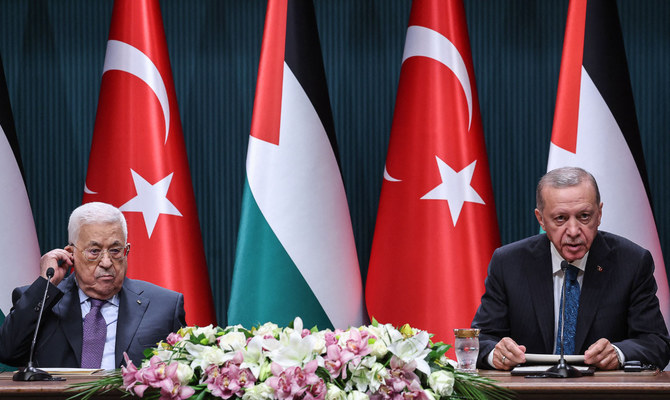Yasar Yakis
After several ups and downs, Turkish-Arab relations have now been stabilized. Turkiye’s President Recep Tayyip Erdogan recently paid a visit of gratitude to Saudi Arabia. He had a warm exchange of views with Crown Prince Mohammed bin Salman. The joint communique issued after the meeting contained almost all subjects of cooperation. The areas of security and defense were given a separate chapter in the communique. An acquisition contract was signed between the defense industry company owned by Erdogan’s son-in-law and the Saudi Ministry of Defense.
Relations between Turkiye and the UAE have also experienced some fluctuations. At one stage, Ankara harshly criticized Abu Dhabi, accusing it of having helped the 2016 military coup that was staged in Turkiye by a Muslim cleric, Fethullah Gulen, who lives in exile in the US.
Furthermore, these two countries found themselves on opposing sides in the Libyan turmoil. The reason for this was related to the Muslim Brotherhood, which supported the Government of National Accord operating in Tripoli. The UAE was supporting Field Marshal Khalifa Haftar’s forces in Libya.
The two countries have now put aside these reciprocal accusations. As there is huge potential in their economic cooperation, they want to utilize it.
The UAE regarded political Islam as a threat to the traditional administrations of the Gulf countries, while Turkiye supported it because Erdogan’s political party, the Justice and Development Party, known as the AK Parti, had an ideological affinity with the Muslim Brotherhood. Therefore, Turkiye-UAE relations became cooler during this period. But a visit paid last year to Turkiye by President Sheikh Mohammed bin Zayed Al-Nahyan helped thaw these frosty relations. Erdogan reciprocated this visit with a big delegation.
This recent visit of the Turkish delegation to the UAE changed the course of events and ended with the signing of 13 agreements amounting to $51 billion. Some $8.5 billion of this will be used to issue bonds for the benefit of the victims of the earthquake that took place in Turkiye in February. The two countries also decided to establish a joint high-level strategic council. This mechanism will allow them to have more structured relations. Turkiye has such councils with several other countries with which it maintains strong economic ties. Most of the documents signed during such visits are memorandums of understanding. Therefore, their implementation will depend on the determination of both sides.
Turkiye also enjoys good relations with Kuwait. Their bilateral relations did not become as shaky as Ankara’s ties with the UAE did. Kuwait cooperates with Turkiye in the defense industry as well. It did not have problems with Turkiye like Saudi Arabia and the UAE did.
Turkish-Qatari bilateral relations have so far fared well but, during the tensions between Qatar and the remaining members of the Gulf Cooperation Council, Turkiye made a wrong decision by taking the side of Doha. This was again for the sake of the Muslim Brotherhood. We do not know whether Turkiye will now tone down its support for this organization. The tensions between Qatar and the remaining members of the GCC was an intra-Arab affair. So Turkiye had to avoid taking part in such a dispute. Now, the tension that previously split the GCC countries has largely subsided. Therefore, Turkiye needs to avoid being on either side.
The relations between Turkiye and Egypt are the most striking. The two sides started by reciprocally exchanging harsh rhetoric and withdrawing their ambassadors from each other’s capital. This was mainly because of the rise to power of Egyptian President Abdel Fattah El-Sisi. Turkiye had previously extended strong support to the democratically elected government of Mohammed Morsi. Despite the tensions, the strong historical relations between the peoples of these two countries helped ensure that the trade volume was not affected and the Turkish companies operating in Egypt did not face any major hardship.
Turkiye did not need to interfere in the domestic affairs of Egypt. It could have issued a communique outlining its concerns, like many other countries did, and stopped there. However, after Erdogan and El-Sisi shook hands, everything started to develop satisfactorily because the edifice of Turkiye-Egypt relations was already strong.
These two countries will hopefully now leave behind all mistakes that they may have committed and look forward to better relations. Improved relations between Turkiye and Egypt may also contribute to the solution of the problems related to the delineation of maritime jurisdiction areas in the Eastern Mediterranean, as Cairo is one of the main actors in the region. Having previously contributed to Turkish-Egyptian relations for four years in my capacity as Turkish ambassador to Egypt, I am very much looking forward to seeing these two friendly countries further strengthen their ties.
The two countries exchanged ambassadors again this month. Turkiye appointed to Cairo a charge d’affaires who already had the ambassadorial title. He is a distinguished member of the Turkish Ministry of Foreign Affairs, so this facilitated the formalities.
Turkiye, Saudi Arabia, Egypt and Iran are the main pillars of the Middle East. If they establish good communications among themselves, these four countries can greatly contribute to stability in the region.
The Middle East needs peace and stability. The atmosphere today looks suitable for a lasting peace in the region. In addition to the thawing of tensions in the region as a whole, Erdogan met President Mahmoud Abbas of Palestine in Turkiye last week. He also invited Israeli Prime Minister Benjamin Netanyahu to visit three days later, although this trip was postponed due to Netanyahu’s health. However, Erdogan’s past dealings have not been satisfactory. Let us see whether Turkiye will perform better this time.







